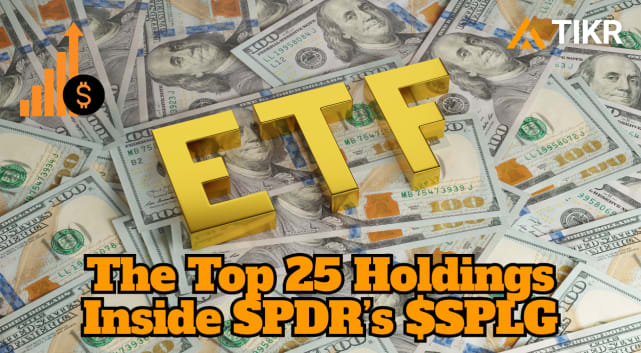PepsiCo, Inc. (NASDAQ: PEP) makes and sells food and beverages worldwide, with a portfolio that includes Pepsi, Gatorade, Lay’s, and Quaker. Shares recently trade near $149, giving the company a market value of about $205 billion, with the stock down roughly 15% over the past year.
Once known primarily for its namesake soda, PepsiCo has grown into a diversified consumer powerhouse with snacks now generating more revenue than beverages. Its broad global footprint, high-margin product lines, and consistent dividend growth have made it a staple holding for income-focused investors. Even as inflation pressures, currency shifts, and changing consumer habits weigh on results, PepsiCo’s 3.8% yield and strong returns on capital keep it positioned as a defensive portfolio anchor.
Ownership of PepsiCo reflects this setup. Passive index funds dominate the shareholder base, while active managers and insiders add more nuance.
Looking at their moves helps reveal how the big players really feel about the stock right now.
The Big Money Behind PepsiCo’s Stock

Track the top shareholders of over 50,000 global stocks (It’s free) >>>
PepsiCo’s shareholder base shows the classic split between passive stability and active conviction. The world’s largest index funds hold massive stakes that keep the stock widely owned across global portfolios, while active managers are moving in different directions.
Some see value in Pepsi’s pullback and are adding, while others are trimming exposure, signaling mixed confidence in its near-term outlook.
- Vanguard Group: 136.3M shares (9.96%), ~$20.4B. Trimmed 1.36M shares (-0.99%).
- BlackRock: 73.6M shares (5.38%), ~$11.0B. Cut 1.08M shares (-1.44%).
- State Street: 58.4M shares (4.27%), ~$8.7B. Added 920K shares (+1.6%).
- Geode Capital: 32.7M shares (2.39%), ~$4.9B. Small increase (+0.27%).
- Charles Schwab Investment Management: 29.0M shares (2.12%), ~$4.3B. Added 2.56M shares (+9.7%).
- J.P. Morgan Asset Management: 18.6M shares (1.36%), ~$2.8B. Reduced 2.69M shares (-12.7%).
One highlight from last quarter is Two Sigma Advisers’ massive increase, boosting its PepsiCo position by more than 1,042%. The fund now owns about 65,000 shares worth $8.6 million, showing a sharp change in conviction.
Another notable move came from Hudson Bay Capital Management, which raised its stake by 430% to roughly 135,000 shares valued at $17.9 million. This jump suggests the fund sees upside in PepsiCo’s defensive qualities.
A third eye-catching shift came from Schonfeld Strategic Advisors, which lifted its holdings by 316% to about 8,500 shares worth $1.1 million. Though smaller in size, the steep increase hints at growing interest among hedge funds after Pepsi’s recent stock decline.
Index funds anchor Pepsi’s ownership, keeping it a reliable long-term holding in major benchmarks. Active managers, however, are split. Franklin Advisers and Schwab are buying more aggressively, which may show confidence in Pepsi’s resilience, while JPMorgan and others are cutting back, suggesting caution.
The divergence highlights how institutions are undecided on whether Pepsi’s current weakness is an entry point or a reason to stay defensive.
See whether PepsiCo’s top shareholders are buying or selling today >>>
What PepsiCo’s Insiders Are Doing With Their Stock

Insider trades at PepsiCo have tilted more toward selling recently, with several top executives reducing their holdings. These moves may simply reflect diversification or scheduled selling plans, but they also highlight the lack of strong insider buying.
The one notable exception is a director stepping in with a modest purchase, which could be read as a small sign of confidence at current levels.
Here are some recent insider sales:
- Ramon Laguarta (CEO): Sold 50,000 shares at ~$155.
- Marie Gallagher (CFO): Sold 25,000 shares at ~$160.
- Becky Schmitt (Officer): Sold 1,335 shares at ~$132.
- Christine Tammara (Director): Bought 6,691 shares at ~$138.
Most sales appear like they could be linked to diversification or planned programs, making it harder to read them as a strong negative signal. Still, the lack of broad insider buying suggests management may not see the stock as an obvious bargain right now.
Tammara’s purchase stands out as a small but encouraging counterpoint, showing at least some willingness within leadership to add exposure.
See recent insider trade data for over 50,000 global stocks (It’s free) >>>
What the Ownership & Insider Trade Data Tell Us
PepsiCo’s shareholder base shows a divided stance. Passive giants like Vanguard and BlackRock continue to anchor the stock across global portfolios, while active managers are heading in different directions. Schwab and Franklin Advisers have increased exposure, but JPMorgan’s steep reduction signals caution.
On the insider side, sales have outweighed purchases, with only one director adding shares. While these trades are relatively small, the lack of broader insider buying may suggest management is hesitant to commit more at current levels.
The signals look mixed. PepsiCo remains a global consumer powerhouse with steady profitability and a 3.8% dividend yield that appeals to income investors. But the stock’s 15% decline over the past year highlights how inflation pressures and shifting consumer trends have weighed on results.
Institutions appear split, and insiders look cautious, leaving investors with a defensive dividend payer that still carries questions about near-term growth.
Wall Street Analysts Are Bullish on These 5 Undervalued Compounders With Market-Beating Potential
TIKR just released a new free report on 5 compounders that appear undervalued, have beaten the market in the past, and could continue to outperform on a 1-5 year timeline based on analysts’ estimates.
Inside, you’ll get a breakdown of 5 high-quality businesses with:
- Strong revenue growth and durable competitive advantages
- Attractive valuations based on forward earnings and expected earnings growth
- Long-term upside potential backed by analyst forecasts and TIKR’s valuation models
These are the kinds of stocks that can deliver massive long-term returns, especially if you catch them while they’re still trading at a discount.
Whether you’re a long-term investor or just looking for great businesses trading below fair value, this report will help you zero in on high-upside opportunities.
Click here to sign up for TIKR and get our full report on 5 undervalued compounders completely free.





